Riqi Harawira - Interview with Riqi Harawira

Muzic.net.nz's Steve S had the great privilege of having Riqi take time and discuss in detail his greatest influences, new music in the works, how the latest video for Ruapekapeka was filmed, and more.
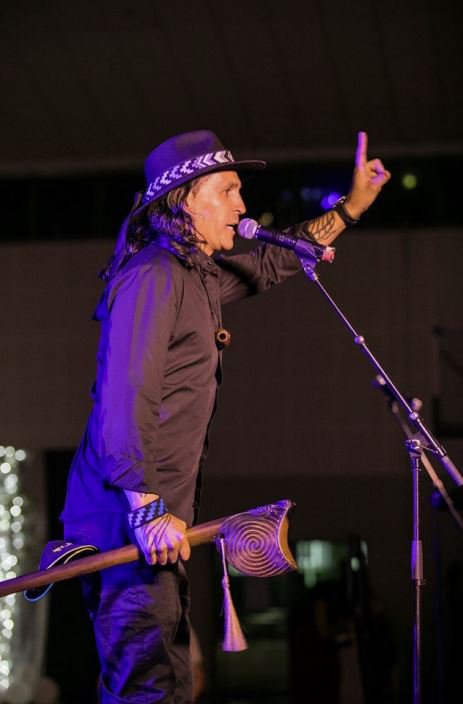 First round’s on me - What’ll you be having?
First round’s on me - What’ll you be having?
Mac’s Gold, because it’s local. A surprisingly large amount of our brewers are owned by offshore big-corps.
Care to list for us your five biggest influences? Can be either musical or non-musical.
Bob Marley for his pure conscious kaupapa and his earnest vocals, he has my heart.
Prince for his sleek and sexy style of playing, and his total boss attitude. The fact he is a half-caste is not wasted on me either. As a mixed-race kid growing up myself he was an example of how combining two different cultures could be a potent, melodic elixir. Prince had so much soul and aptitude as an artist. Much like Lenny Kravitz too.
Miles Davis because he is a mean mofo and reinvented the Jazz idiom. Nobody f**ed with Miles, except racist police. He was a master of free-styling.
Now, I’m going to cheat here: Stevie Ray Vaughn, Jimmy Page, Gary Moore, Peter Frampton & Jimi Hendrix are my favourite guitarists because they become unhinged and unrestricted in their wairua and technique when they play. Their signature styles go beyond technical abilities & can only be described as Ariki or Atua, other-worldly, Rangatira, high ranking aristocrats of the guitar realm.
What was the most rewarding thing you got up to whilst in lockdown?
I was still getting paid, which was really nice, and it afforded me the time to focus on my Mau rakau and fitness, which I love. I am not only working towards a new grading next year, but I am also helping others to achieve their grades. The kaupapa teaches you about Unity and serving others. It’s a responsibility to the kaupapa of Te Whare Tu taua o Aotearoa to give back to the kaupapa and not just take from it. Helping others is encouraged. Part of my grade is to learn how to teach so I get more responsibility put on me by higher ranking Pou (Posts) and my teachers to assist them in bringing mana to our peka (branch).
What do you personally believe makes a great song "great"?
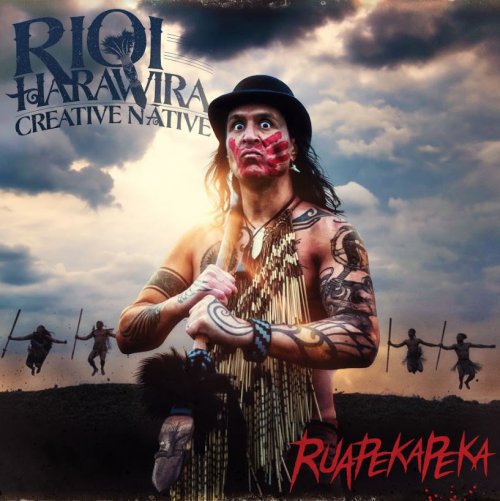 I love a killer bass line or guitar riff. But, whatever genre it is and whatever level of playing it is, it has to be honest and delivered with truth and sincerity
of the heart. There is a Maori word 'Mauri' which means life-force. I’m always trying to write songs that support themselves with their own Mauri and Identity. They can stand alone and have a style or signature that is universal.
I love a killer bass line or guitar riff. But, whatever genre it is and whatever level of playing it is, it has to be honest and delivered with truth and sincerity
of the heart. There is a Maori word 'Mauri' which means life-force. I’m always trying to write songs that support themselves with their own Mauri and Identity. They can stand alone and have a style or signature that is universal.
Your single Ruapekapeka is a hard rock tune sung in Te Reo; what compelled you to write about this particular historical battle?
Since moving back to my Turangawaewae Ahipara in the far north I have been delving in to a lot of Maori kaupapa. I’ve also picked up more Te reo Maori and being in the stomping grounds of my father (Te Rarawa, Te Aupouri) and our ancestors which has fed my wairua. I train with Te whare Tu taua o Aotearoa which is an international school of Maori weaponry developed by Pita Sharples and has thousands of followers worldwide. It is a high honour for me to learn the ways of the warrior, and to wield the Taiaha is a boyhood dream of mine, especially as I have been learning from my own people Kohao Tu taua o Ngapuhi. The North is full of beautiful Maori kaupapa, and you are often included or asked to tautoko and represent.
My fiance and I visited Ruapekapeka pa in 2018 and I was inspired to learn more about it and write the song. I had this killer riff already and decided it was a great fit and it was meant to be the chassis to carry this kaupapa. I wanted to create something that was uniquely bespoke to my iwi Ngapuhi. Something I could leave behind, something for new generations to instil some inspiration and make the great accomplishments of our ancestors relevant again. My father is buried at Te Ahu Ahu in Ohaeawai which is a battle that we cover in the song Ruapekapeka. It's Hone Heke's maunga and that's where I will end up one day next to my father.
The accompanying music video to Ruapekapeka is both detailed and epic; where was it filmed, how long did it take to shoot, and how many people were involved with filming?
 The video was shot exclusively at Ruapekapeka pa in Towai, north of Whangarei. Originally I had planned to film in Auckland on a green screen, but in hindsight,
I wasn't thinking big enough, but after meeting Kawiti’s descendants, Kaumatua Hirini Henare, and Kawiti’s great-grandson Ken Kawiti of Ngati Hine, I was welcomed onto their marae, which gave me the tohu (sign) that I was meant to film at the pa.
I had the honour of having members of Te Kohao Tu taua o Ngapuhi and members from our Peka (branch) in Kaitaia Nga Taniwha o Muriwhenua support me as an Opetaua (war party) who participated in the fight scenes. That is genuine mahi from Te whare Tu
Taua! As producer on this music video, it is my job to think outside the square & acquire all the right parts to make the project successful. One of my visions was to acquire the re-enactment footage we used from South Seas Film and Television,
which saved us Thousands in the end.
The video was shot exclusively at Ruapekapeka pa in Towai, north of Whangarei. Originally I had planned to film in Auckland on a green screen, but in hindsight,
I wasn't thinking big enough, but after meeting Kawiti’s descendants, Kaumatua Hirini Henare, and Kawiti’s great-grandson Ken Kawiti of Ngati Hine, I was welcomed onto their marae, which gave me the tohu (sign) that I was meant to film at the pa.
I had the honour of having members of Te Kohao Tu taua o Ngapuhi and members from our Peka (branch) in Kaitaia Nga Taniwha o Muriwhenua support me as an Opetaua (war party) who participated in the fight scenes. That is genuine mahi from Te whare Tu
Taua! As producer on this music video, it is my job to think outside the square & acquire all the right parts to make the project successful. One of my visions was to acquire the re-enactment footage we used from South Seas Film and Television,
which saved us Thousands in the end.
Overcoming addiction is something you wear proudly on your sleeve; what advice would you give to someone dealing with addiction?
You cannot do it alone, because even if you stop, you will only be stopping the symptoms. Get professional help. Getting an assessment from a trained clinician is the best first step. Salvation Army have a great one to singular or group programmes. N.A. meetings are really good for the soul. It’s in the fellowship of these programmes that you learn new tools. These are all walk-in, off-the-street foundations. There’s no judgement; empathy and support are prime ethics involved with these institutions. It’s where I got my start in recovery, and after all these years, I am back at Salvation Army learning how to become an addictions therapist myself.
What does New Zealand music personally mean to you? And what changes would you like to see?
My father was the first Maori to perform on 6 continents of the world in 1955. When he was in America he had to sit on the Black side of the bus. He was a young Maori boy from the far north performing for the Queen on two occasions, and he performed with Nat King Cole, plus a string of other accomplishments. When he returned to NZ he had a record deal, and even cut an album which we had stored away until after his death 1990. Unfortunately, the album was lost and like the record deal, it never saw the light of day. Part of my motivation for being an artist is to continue the positive aspects of my father’s legacy and to carry his torch with pride.
Streaming rates should be better; musicians get even better when they are remunerated properly.
 Also, Kiwis really should go out and support more Kiwi artists, especially at grassroots levels. Go make a big thing about it, make NZ music thrive!
Also, Kiwis really should go out and support more Kiwi artists, especially at grassroots levels. Go make a big thing about it, make NZ music thrive!
In what ways have you seen the use of Te Reo Maori in Kiwi music change over the years?
It has become more complex and stronger because the kohanga reo and Kura kaupapa generation from the 80’s are confident speakers, and have taken Te Reo to higher and different places.
Which Kiwi artists or bands have you been listening to lots of recently?
TrinityRoots, Troy Kingi, L.A.B. and Blindspott.
What’s coming up on your musical horizon? New music in the works? Are there any gigs planned over the next few months?
I am working on a follow-up to Ruapekapeka. It’s called Take the Power Back, which is a freedom fighters’ song about Te Tiriti o Waitangi, and how it has affected me growing up as a half-caste in Aotearoa. I was raised in a dominant culture that had me thrown into youth prison as a 10-year-old boy for a minor indiscretion by a racist white policeman Constable Carr. After borstal, which was 80% Maori, 19% Polynesian and 1% Pakeha, I went through foster care. It was there that I was exposed to solvent, drug and sexual abuse. I was a brown statistic; I have been finding my way back ever since. I can now proudly say that I have beaten addiction. I am engaged to a strong, beautiful wahine. I have the love of my children. I have a great job, and I am studying. I am grateful for my musical abilities and the gifts passed down to me. I love my life!
About Riqi Harawira

Riqi is a lover of guitar and passionate about playing it. A multi-instrumentalist, Riqi frequently melds te reo Maori and English with rock and grunge music, dabbling with covers of Jimi Hendrix, Tama Renata, Joe Satriani and performing the NZ national anthem and the Last Post with the healing voice of his guitar he calls Mareikura (named after a Ngati Kahungunu princess).
Immersed in music from a young age, his father, Rangi Hadfield (Rangi Harawira) was an international Maori entertainer who performed in over 65 countries and who taught Riqi the guitar.
Visit the muzic.net.nz Profile for Riqi Harawira
Other Interviews By Steve Shyu
 WHITE NØISE MAFIA - Interview with White Noise Mafia - Ding Dong Lounge Band Comp 2020 Winners
WHITE NØISE MAFIA - Interview with White Noise Mafia - Ding Dong Lounge Band Comp 2020 Winners
01 Dec 2020 // by Steve Shyu
Sometime in the middle of 2020, four Auckland metalheads and rockers Chris (guitarist and vocalist), Neo (drummer) and two Matt's (bassist and lead guitarist) got together to jam, rehearse and write songs. Fast-forward to the tail-end of this dramatic year, and quartet White Noise Mafia have taken out the grand prize at the prestigious annual Ding Dong Lounge Band Competition of 2020.
Read More...
 Interview: Leah Hinton from Murmur Tooth
Interview: Leah Hinton from Murmur Tooth
25 Mar 2020 // by Steve Shyu
Kiwi musician and producer Leah Hinton, AKA Murmur Tooth, has self-released her debut album A Fault in This Machine on 19 March, which is now available through Bandcamp, Spotify and all the usual music streaming and download sites. Formerly of the bands El Schlong and Kobosh, Leah wrote, recorded, produced and mixed the album herself, which she loosely describes as doom-pop.
Read More...
 Newsletter Interview: The Wake Up
Newsletter Interview: The Wake Up
14 Feb 2020 // by Steve Shyu
The Wake Up are one of the most ambitious groups in Aotearoa today. Hailing from Palmerston North and initially consisting of drummer Caleb and guitarist Chris, two became three with the addition of the talented Laura behind the microphone.
Read More...
 Interview with H and Tim of Dillastrate
Interview with H and Tim of Dillastrate
17 Dec 2019 // by Steve Shyu
Self-described "neo-soul-pop" duo Dillastrate from Christchurch very recently released their first full-length, self-titled album. Born from Kiwi acts AHoriBuzz and Soulsystem, the two have rocked thousands at local festivals Northern Bass, Rhythm & Vines and Electric Avenue, as well as opening for Kiwi greats Sons of Zion and Katchafire.
Read More...
 Interview with Daniel McClelland
Interview with Daniel McClelland
22 Nov 2019 // by Steve Shyu
The ever-ambitious multi-instrumentalist Daniel McClelland is continuing his musical mission of making pop music that rocks. His debut album Anxious Heart earned a nomination for Auckland Live Best Independent Debut Award at 2018's Taite Music Awards, and now Daniel is back with a brand new EP.
Read More...
11 Nov 2019 // by Steve Shyu
BOKEH is the artistic alter-ego of New Zealand raised, Berlin based audio-visual artist, Chole Lewer. With her debut EP Don't Leave The Fire released in 2017, Chloe is also the director and producer for her own film production company, Ramona Ramona.
Read More...
 Interview with Coridian
Interview with Coridian
25 Oct 2019 // by Steve Shyu
Coridian have become something of a household name in the Kiwi alternative-rock scene. Often regarded as local legends in Auckland, they’ve crafted two EP's and released half a dozen singles, the band have also opened for international acts like Fuel, P.
Read More...
 Interview with JP Carroll / Arrays
Interview with JP Carroll / Arrays
07 Oct 2019 // by Steve Shyu
Arrays is the current side-project of JP Carroll, the lead singer and songwriter of renowned hard-rockers Armed in Advance. The three-piece act enjoyed loads of airplay on The Rock with their hit singles Same Old Story and Stay, as well as supporting Villainy and I Am Giant live on the stage.
Read More...
Most Viewed Artists
Latest Galleries
NZ Top 10 Singles
- APT.
ROSÉ And Bruno Mars - DIE WITH A SMILE
Lady Gaga And Bruno Mars - BIRDS OF A FEATHER
Billie Eilish - TASTE
Sabrina Carpenter - I LOVE YOU, I'M SORRY
Gracie Abrams - ESPRESSO
Sabrina Carpenter - SAILOR SONG
Gigi Perez - LOSE CONTROL
Teddy Swims - A BAR SONG (TIPSY)
Shaboozey - GOOD LUCK, BABE!
Chappell Roan



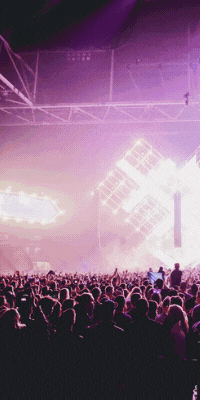
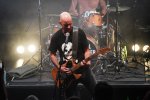
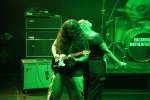
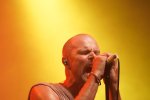
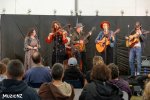


 Report A Problem
Report A Problem

